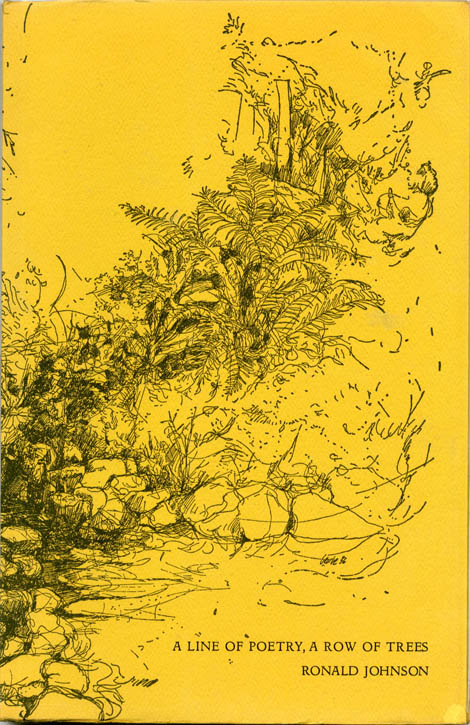I’ll be presenting a paper titled “Recipes for Wildness: Taste in Ronald Johnson’s A Line of Poetry a Row of Trees and The American Table” at the 30th Annual American Literature Association Conference this year. The panel includes Mark Scroggins, Devin King, and Sally Connolly. The abstract is included below. Hope to see you there!
Recipes for Wildness: Taste in Ronald Johnson’s A Line of Poetry a Row of Trees and The American Table
Although Ronald Johnson’s early poetry is filled with Early American discoveries of wild apples, Indian Corn and Floridian oranges, and his later work includes prize winning cookbooks, his gastrophilosophy remains largely unexplored. This dearth is in part due to the nature/culture dualism that haunts the Transcendentalist lens typically used to theorize Johnson’s poetry. However, I argue that Johnson developed a theory of taste from encounters with matter’s dynamism that intervenes in this historical division of nature and culture. Beginning with his 1964 collection of poetry A Line of Poetry a Row of Trees, and culminating in his popular cookbook from the 1980s, The American Table, Johnson’s performative notion of taste suggests that “wild” metamorphoses in the unique phenomena emerging at the inseparability of word and world are analogous to gustatory experiences. Like poetic practice, taste is the embodied participation in the specific material (re)configuration of nature/culture relations through which boundaries, properties, and meanings are enacted. Taste, for Johnson, acknowledges matter’s role in food’s becoming, and therefore provides an understanding of how discursive practices make meaning. In addition, Johnson’s performative practice has a critical facet; it savors “wildness,” the disruption of boundary making practices that assume the separation of discursive and physical matter. This paper proposes that only by juxtaposing the recipes of representation, which linger in Johnson’s early collection, with the culinary practices of his later cookbooks, can we fully understand how his performative taste productively mixes a volatile American culinary past into a wild future.
While you’re waiting on the panel, check out Sam Amadon’s great essay on Ronald Johnson’s Cookbooks.

